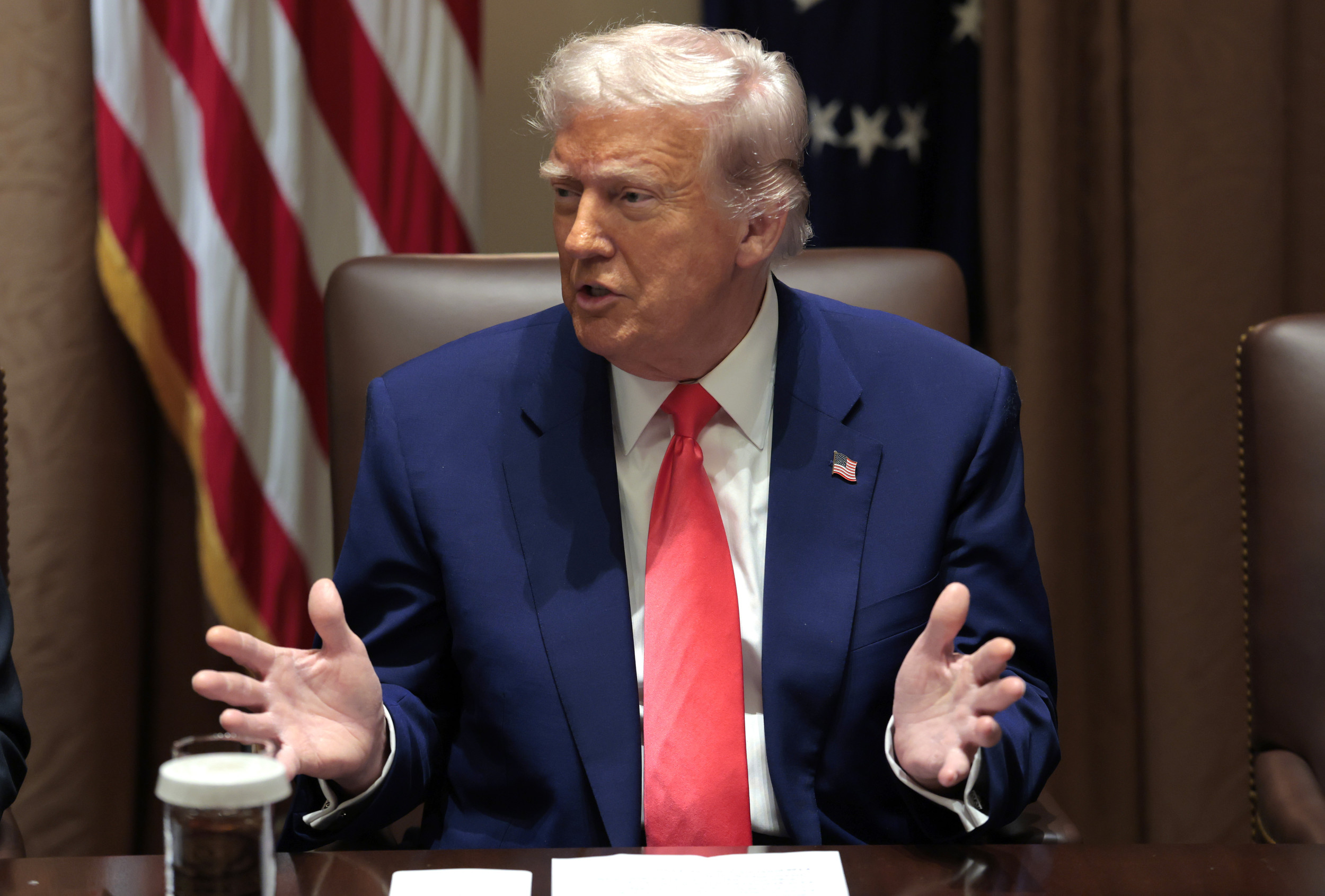
President Donald Trump‘s decision to exempt many electronics from newly implemented tariffs has sparked surprise from critics, with some citing recent remarks by Commerce Secretary Howard Lutnick to quip about the latest scaling back of the controversial economic policy.
Newsweek reached out to the White House and the U.S. Customs and Border Protection (CBP) for comment on Saturday.
Why It Matters
Earlier this week, Trump’s “reciprocal” tariffs went into effect for several hours before he paused most of them for 90 days—with the notable exception of China.
The United States and China remain in a tit-for-tat trade war, with Trump hiking the 104 percent tariffs on China to 125 percent on Wednesday after Beijing hit back at the U.S. with an 84 percent additional levy earlier in the day. Trump’s total tariffs now stand at 145 percent on Chinese goods, while China has imposed a 125 percent tariff, dismissing Trump’s strategy as “a joke.”
As recently as last Sunday, Lutnick said that tariffs would allow smartphone manufacturing to happen in the U.S., instead of abroad. But the Friday announcement of the electronics exemption suggests manufactures will no longer have the immediate incentive to consider producing smartphones and other electronics in the U.S.
What to Know
A Friday evening update from CBP exempted smartphones, computer monitors and various electronic parts from the tariffs. The decision was retroactive to as early as April 5.
The exemption list includes products the U.S. heavily relies on for overseas production, with limited domestic manufacturing capacity and high consumer demand. Companies such as Apple, which carries out 90 percent of its iPhone manufacturing in China, are set to benefit from the exemptions.
“Big Tech firms like Apple, Nvidia, Microsoft and the broader tech industry can breathe a huge sigh of relief this weekend into Monday,” analysts at Wedbush said in a statement, CNN reported. “A big step forward for US tech to get these exemptions and the most bullish news we could have heard this weekend.”
While tech companies may be breathing a sigh of relief, some critics of Trump’s tariffs took to X, formerly Twitter, on Saturday to joke about the decision and remind their followers of the administration’s own words regarding the tariffs.
What Trump Critics Are Saying
Ed Krassenstein, a commentator who has 1 million followers on X, wrote: “It’s almost getting comical at this point. Trump literally said there would be ‘no exemptions’ to his reciprocal tariffs (see video) and MAGA cheered. ‘No, with reciprocal [tariffs] you don’t need to,’ he said. Now, suddenly he’s backtracking again and adding a bunch of exemptions to his reciprocal tariffs. And MAGA is cheering yet again. It’s almost as if he has no idea what he’s doing and MAGA doesn’t stand for anything except whatever Trump says and does.”
Joe Walsh, a former Republican congressman and prominent Trump critic, wrote on X: “More exemptions, so the question remains: If tariffs are so great, why so many exemptions?”
MSNBC host Stephanie Ruhle on X: “So these exemptions on electronics from China… Is this how we should see it? ‘We are imposing a 145% tariff on all Chinese goods -except what we buy.'”
Keith Olbermann, a political commentator, on X: “Trump: Tariffs are perfect and beautiful and mandatory and I won’t back down. Also Trump: here are 37,498 tariff exemptions for companies who’ve greased me.”
Tahra Jirari, director of economic analyst at Progress Chamber, on X: “Incredible. Someone check on Lutnick, I know he wanted us screwing millions of smartphones.”
Sar Haribhakti, who leads global product communications at Stripe, on X: “Five days ago: Lutnick: ‘The army of millions and millions of human beings screwing in little screws to make iPhones—that kind of thing is going to come to America.’ Last night:” Haribhakti reposted the news about the tariff exemptions on electronics.
Michael McFaul, former U.S. ambassador to Russia, on X: “More caving (thank goodness). What is the strategy here? President Donald Trump’s administration exempted smartphones, computers and other electronics from its so-called reciprocal tariffs, potentially cushioning consumers from sticker shock.”
Anna Moneymaker/Getty Images
What Officials Are Saying
Commerce Secretary Howard Lutnick to CBS News’ Face the Nation last Sunday: “The army of millions and millions of human beings screwing in little screws to make iPhones—that kind of thing is going to come to America.”
White House press secretary Karoline Leavitt in a Saturday statement: “President Trump has made it clear America cannot rely on China to manufacture critical technologies such as semiconductors, chips, smartphones, and laptops.”
President Donald Trump, in a Wednesday post on Truth Social: “Based on the lack of respect that China has shown to the World’s Markets, I am hereby raising the Tariff charged to China by the United States of America to 125%, effective immediately. At some point, hopefully in the near future, China will realize that the days of ripping off the U.S.A., and other Countries, is no longer sustainable or acceptable.”
China’s Finance Ministry, in a statement: “The U.S. escalation of tariffs on China is a mistake on top of a mistake, which seriously infringes on China’s legitimate rights and interests and seriously undermines the rules-based multilateral trading system.”
What Happens Next?
The exemptions are already in effect. Tensions between Washington and Beijing remain high, with no sign that other tariffs will be reduced anytime soon.
Many other nations are reportedly in the process of negotiating with the Trump administration during the ongoing 90-day pause announced this week.
